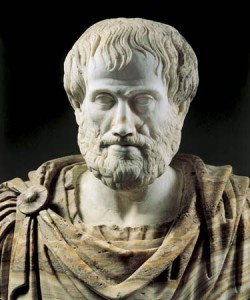On this page we want to think about biology as a science: what exactly is its object of study and what is not, what are its methods and which are not, for example. The importance of this is great because if we do not have this clear, we can easily get into trouble with other disciplines and all kinds of misunderstandings can arise. For example, biology does not make philosophical statements in principle and even fewer theological statements, but biology starts from a number of philosophical assumptions that are often taken for granted that no one thinks about them. The danger of this is that some biologists don’t realize it when they go beyond their territory and make metaphysical or even religious statements. We come back to this on the page about the relationship between biology and theology.
According to the American philosopher Peter Kreeft, philosophy has four subfields:
- metaphysics or the philosophy of being, existence,
- the (philosophical) anthropology or the philosophical reflection on man, the human image that we can have,
- Epistemology: what can we know, how can we obtain knowledge?
- The ethics: how should we act, is there such a thing as ‘good’ and ‘evil’ and if so, how to do ‘good’ and avoid ‘evil’?
Starting from these four areas of philosophy, we can see how biology relates to each of these subfields of philosophy.
- Biology concerns the being, the existence ( existence ) of living organism in time and space. One might already wonder why this organisler exists and does not exist? One may also wonder what distinguishes living matter from inanimate matter studied by physics (physics), chemistry (chemistry), geology and (physical) cosmology (or astrophysics). How can we define ‘life’? And what place do we give to flawed life and finitude?
- Man is at least also a biological being, just like all higher primates, all mammals, all animals, you like all living organisms. Yet he may not be just a biological being. How do we define man with his unique spiritual qualities (language, intelligence, conceptual thinking, self-awareness, morality, burial rituals, religiosity)?
- Biology is a human activity that aims to know and understand the living reality around him and himself not excluded. What are the methods specific to biology to acquire this knowledge, which phenomena does biology specifically focus on (and which do not)? What can man know and what can’t, biologically speaking.
- How does man deal with the knowledge he has acquired of living reality? Which research methods does he consider ‘ethical’ and which are not? Which applications of biological knowledge are considered morally acceptable and which are not. And why? What are the ethical starting points for arriving at a good assessment?
Starting from biology, we can say:
- that man is fascinated by the reality in which he lives, in particular the living reality in time and space, that he tries to make an inventory of what lives and what does not and how these are related to each other and can therefore also be classified, and then also discover the natural laws through which life takes place: from biochemical processes at the atomic and molecular level, through (molecular and classical) genetics to reproduction, embryology, physiology (including disease and death), population dynamics, ecology and evolution, including man, as far as his biological nature is concerned.
- that living (and inanimate) reality obeys natural laws that allow man to understand it, anticipate biological events and even manipulate them to some extent, ranging from medicine, hereditary manipulation, agriculture, to environmental management and even life in space (space travel, life on Mars…)
- that man thereby uses his sensory perception and his mind, assuming that these can lead him to reliable knowledge.
- Man also relies on the facts of logic (correct thinking, qualitative) and mathematics (quantitative), which appear to underlie inanimate and living reality and man himself.
- At the same time, we understand that biology has its limits, both in relation to the physics and chemistry that support it, and in relation to the humanities, philosophy and theology, which often or exclusively study metaphysical and therefore meta-biological issues and therefore ‘transcend’ biology as a science.
Created on 9 January 2016




